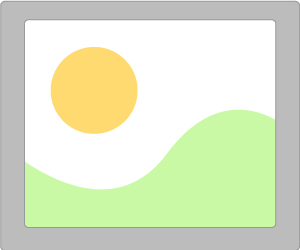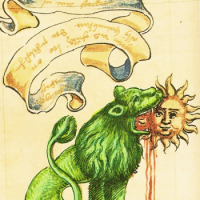Messages: 46
Language: English
Tempodivalse (User's profile) August 25, 2015, 4:49:17 PM
bosredsox24:Personally I think it sounds sort of sterile. Probably because of the standardized vowels and the penultimate stressing.This may be partially because of the speakers - I notice that some Esperantists tend to speak rather monotonously, perhaps trying to hard to enunciate every sound (this is the impression I get from watching esperanto youtube speakers).
Italian has penultimate stressing too, most of the time, while French normally stresses the last syllable. Italian also has the same complement of vowels as Esperanto.
I think the 'sterile' sound comes not from stressing, but from the very frequent -oj -aj sounds, which don't appear with such regularity in most Western languages. Though personally it doesn't bother me.
ravana (User's profile) August 25, 2015, 5:18:55 PM
Tempodivalse (User's profile) August 25, 2015, 5:26:04 PM
ravana:In that case italians are the best speakers .Italians have the best pronunciation, in my experience - as I recall, Zamenhof indicated once that the Italian accent was preferable (sorry, no source - maybe someone can dig up what Z's thoughts on accent were?).
English speakers have the hardest time (maybe besides Asian speakers) with getting a proper accent - they keep pronouncing the open vowels as dipthongs, and it doesn't help that the English-language Fundamento gives erroneous pronunciation advice. It says to pronounce "u" as in "bull", the "a" as "last" and the "e" as the "a" in "make" - did Z not proofread this??? Or maybe his own English was not so strong.
mbalicki (User's profile) August 25, 2015, 10:56:22 PM
Tempodivalse:Italians have the best pronunciation, in my experience - as I recall, Zamenhof indicated once that the Italian accent was preferable (sorry, no source - maybe someone can dig up what Z's thoughts on accent were?).I didn't read anything about Italian pronunciation, but in the “Berlina komentario” they've mentioned one answer from the “Lingvaj respondoj” where he compared ideal Esperanto pronunciation to the Polish traditional Latin pronunciation (which set of sounds is almost equal to the Polish). He wrote:
Ludoviko L. Zamenhof:La elparolado de Esperanto estas tute konforma (kompreneble krom la supersignitaj literoj) al la latina elparolado, kiu estas uzata en mia lando.So let nobody worry about choosing between /o/ or /ɔ/ for the correct pronunciation of “o” or between /e/ or /ɛ/ for “e”. Zamenhof had Polish pronunciation in mind, so /ɔ/ and /ɛ/ are zamenhofian, as in Polish these letters:

correspond to these sounds:

eric_vandenburg (User's profile) August 26, 2015, 2:18:57 AM
jagr2808:I shout capitalized words. Doesn't everyone?eric_vandenburg:That only works when writing....
For this reason, I use the lower case when I mean a word derived from esper'i (to hope), and the upper case when I mean a word derived from Esperant'o ( the name of the language ). This clears up all potential confusion unless it's at the beginning of a sentence, or unless i'm angrily typing in all-caps.
La reguloj pri Esperanta majuskligo ĉi-kaze ne estas absoluta. Sed estas nepre permesita majuskligi vorton tian, kia estas bazita de propra nomo.
Tial, mi persone uzas la minusklon tiam la senco devenas el esper'i, kaj la majusklon tiam ĝia deveno estas Esperant'o, nia lingvo. Por mi, tio forviŝas la plejmulton de la nebulo.
Tio nur funkcias kiam oni skribas.....
Armand6 (User's profile) August 26, 2015, 2:23:16 AM
Tempodivalse:the "e" as the "a" in "make"There are other 19. century books which gave 'make' as an example of continental E. Probably their authors considered the glide part in the literature pronunciation ignorable.
vejktoro (User's profile) August 26, 2015, 3:22:40 AM
Armand6:Maybe the word was pronounced differently in the past.Tempodivalse:the "e" as the "a" in "make"There are other 19. century books which gave 'make' as an example of continental E. Probably their authors considered the glide part in the literature pronunciation ignorable.
Alkanadi (User's profile) August 26, 2015, 6:07:47 AM
bosredsox24:Personally I think it sounds sort of sterile. Probably because of the standardized vowels and the penultimate stressing.It is probably because most Esperantists aren't perfectly fluent. If I try to speak Esperanto then I sound terrible because I have to think of each word in my head before I say it. It doesn't come naturally. Therefore, it sounds a bit mechanical.
ravana (User's profile) August 26, 2015, 8:07:19 AM
Alkanadi (User's profile) August 26, 2015, 3:34:46 PM


